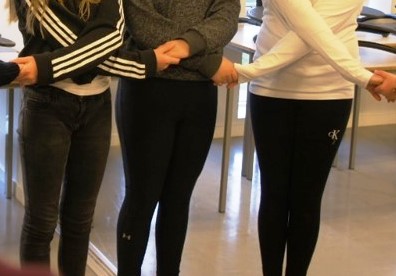The theatrical body – in the tension between between discipline and play
DOI:
https://doi.org/10.7577/information.4145Abstract
In this article, I examine how selected basic exercises in drama and theater practice activate the theatrical body – in the tension between the disciplined and playful body. The study examines the student's experience and the drama teacher's own practice. The data is from the research project "Democratic and aesthetic space", which consists of videotapes of basic exercises, student interviews and a research journal from fieldwork with two groups of 7th grade students. The concept of embodied literacy (Frambaugh-Kritzer et al., 2015) is discussed and Foucault and Gadamer's theories are used in perspectives on the disciplined and the playful body. The study shows that activating the theatrical body involves training in presence, interaction, response and receptivity with the body as meaning-creating tools and communicative idiom. At the same time, some basic exercises can result in caricaturing of already stereotyped ideas about role categories. Further, the fictional framework of the basic exercises through the "theatrical gaze" gives students opportunities in the "playspace" to activate the theatrical body. Focusing on spontaneity and reducing blockages is important for strengthening students' practices of the self. I want to expand the discourse and place drama and theater practice into an expanded physical activity perspective.

Downloads
Published
How to Cite
Issue
Section
License

This work is licensed under a Creative Commons Attribution 4.0 International License.
Authors who publish with this journal agree to the following terms:
- Authors retain copyright and grant the journal right of first publication with the work simultaneously licensed under a Creative Commons Attribution License that allows others to share the work with an acknowledgement of the work's authorship and initial publication in this journal.
- Authors are able to enter into separate, additional contractual arrangements for the non-exclusive distribution of the journal's published version of the work (e.g., post it to an institutional repository or publish it in a book), with an acknowledgement of its initial publication in this journal.
- Authors are permitted and encouraged to post their work online (e.g., in institutional repositories or on their website) prior to and during the submission process, as it can lead to productive exchanges, as well as earlier and greater citation of published work (See The Effect of Open Access).